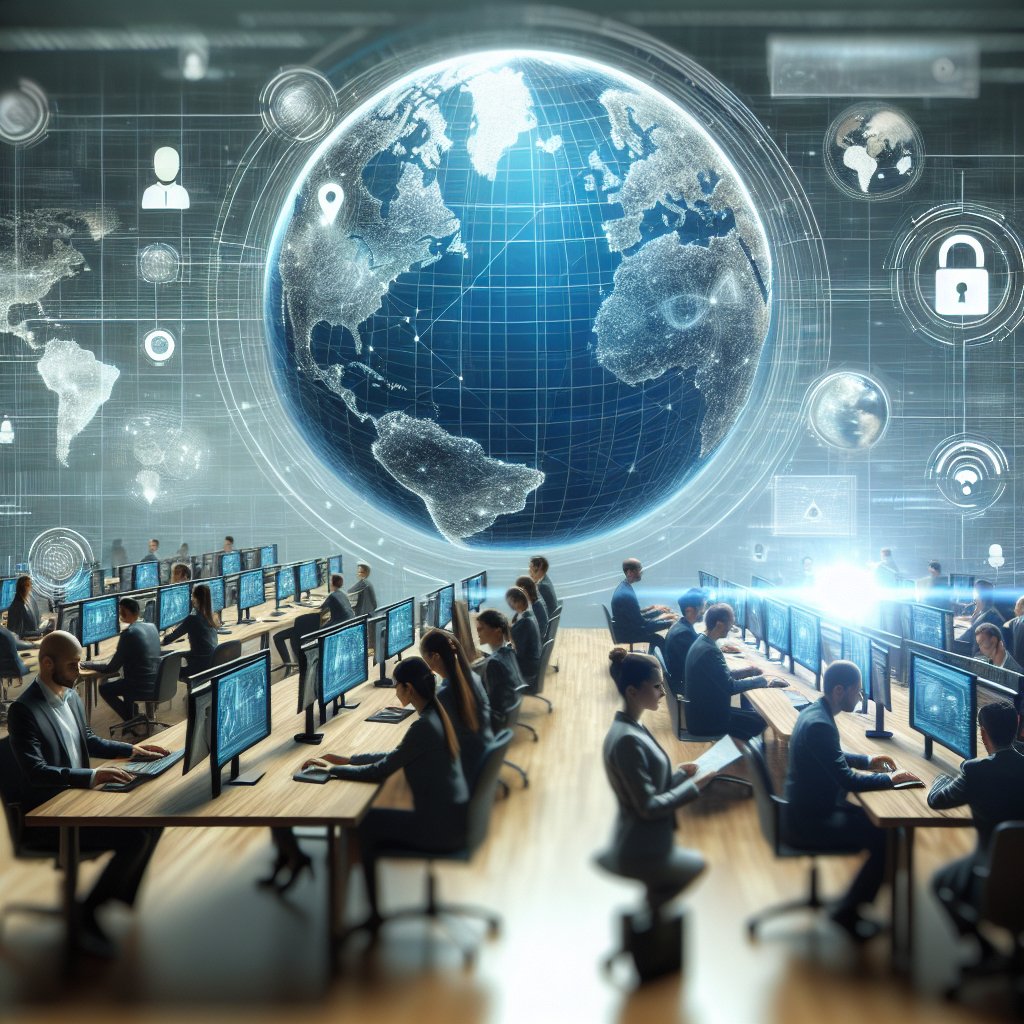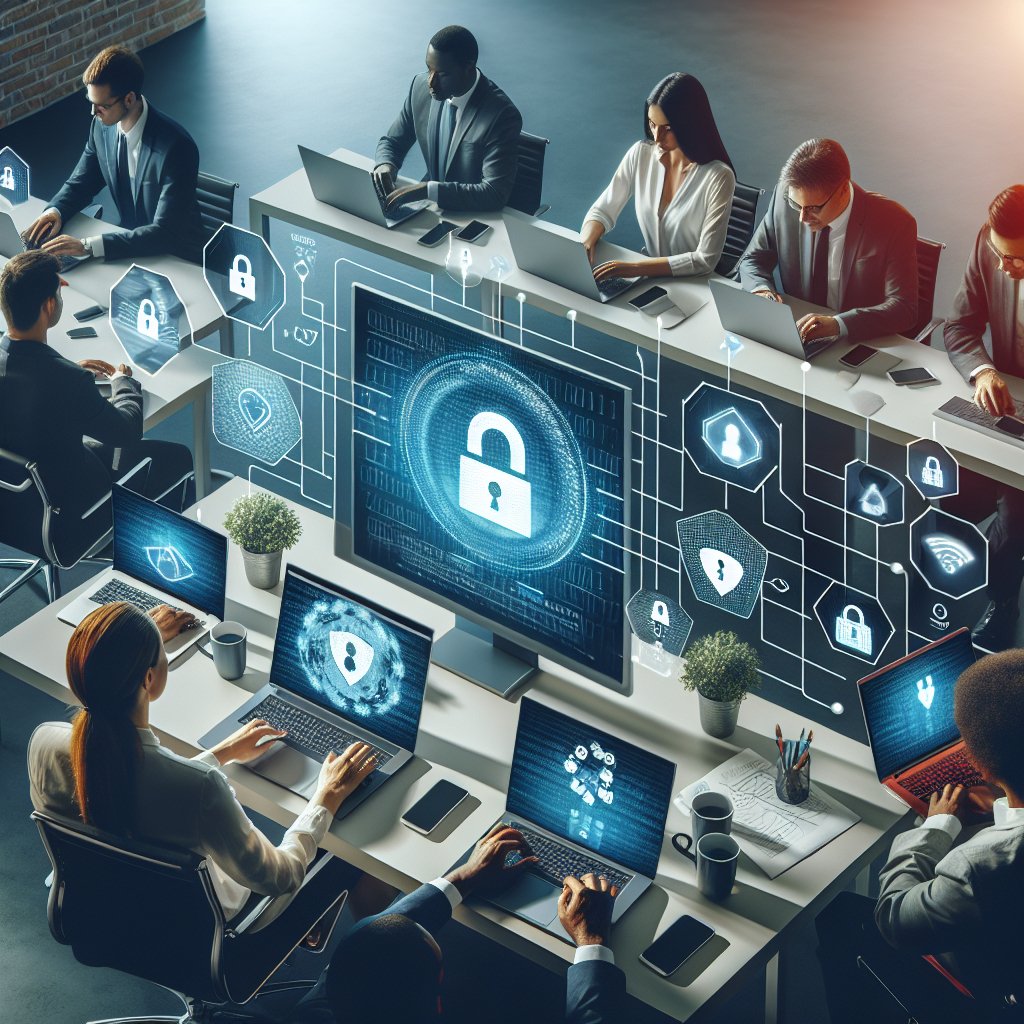Cyber hygiene is an essential practice in our increasingly digital world, where the lines between our personal and online lives are often blurred. As we navigate through various online platforms, the importance of maintaining good cyber hygiene cannot be overstated. This article delves into the significance of cyber hygiene in daily life, exploring its impact on personal security, privacy, and overall digital well-being.
Understanding Cyber Hygiene
Cyber hygiene refers to the set of practices and steps that individuals and organizations can take to maintain the health of their digital devices and online presence. Just as personal hygiene is crucial for physical health, cyber hygiene is vital for protecting oneself from cyber threats. It encompasses a range of activities, from using strong passwords to regularly updating software and being aware of phishing scams.
The Basics of Cyber Hygiene
To effectively practice cyber hygiene, one must understand its fundamental components. Here are some key practices that everyone should adopt:
- Strong Passwords: Creating complex passwords that include a mix of letters, numbers, and symbols is the first line of defense against unauthorized access. It is advisable to use a unique password for each account to minimize risk.
- Two-Factor Authentication (2FA): Enabling 2FA adds an extra layer of security by requiring a second form of verification, such as a text message or authentication app, in addition to the password.
- Regular Software Updates: Keeping software and operating systems up to date is crucial, as updates often include security patches that protect against vulnerabilities.
- Secure Wi-Fi Networks: Using a secure and private Wi-Fi connection, along with a strong password for the network, helps prevent unauthorized access to personal devices.
- Awareness of Phishing Scams: Being able to identify phishing emails and messages is essential. Users should be cautious of unsolicited communications that request personal information or direct them to suspicious websites.
The Impact of Cyber Hygiene on Personal Security
Maintaining good cyber hygiene significantly impacts personal security. With the rise of cybercrime, individuals are increasingly vulnerable to various threats, including identity theft, financial fraud, and data breaches. By adopting proper cyber hygiene practices, individuals can mitigate these risks and protect their sensitive information.
Identity Theft and Financial Fraud
Identity theft occurs when someone unlawfully obtains and uses another person’s personal information, often for financial gain. Cyber hygiene plays a crucial role in preventing identity theft. For instance, using strong, unique passwords for financial accounts and enabling 2FA can significantly reduce the likelihood of unauthorized access. Additionally, regularly monitoring bank statements and credit reports can help individuals detect any suspicious activity early on.
Data Breaches
Data breaches have become alarmingly common, with organizations of all sizes falling victim to cyberattacks. When personal data is compromised, it can lead to severe consequences for individuals, including financial loss and reputational damage. By practicing good cyber hygiene, individuals can minimize the impact of data breaches. For example, using a password manager can help users create and store complex passwords securely, reducing the risk of using the same password across multiple sites.
Cyber Hygiene and Privacy Protection
In addition to enhancing personal security, cyber hygiene is vital for protecting privacy. In an age where personal data is often collected and shared without consent, individuals must take proactive steps to safeguard their information.
Understanding Data Privacy
Data privacy refers to the proper handling, processing, and storage of personal information. With the increasing amount of data shared online, understanding data privacy is essential for individuals. Cyber hygiene practices, such as reviewing privacy settings on social media accounts and being cautious about the information shared online, can help individuals maintain control over their personal data.
Social Media and Online Presence
Social media platforms are a significant part of daily life for many individuals. However, they also pose privacy risks if not managed correctly. Regularly reviewing privacy settings, limiting the amount of personal information shared, and being mindful of friend requests can help protect one’s online presence. Additionally, individuals should be aware of the potential consequences of oversharing, as it can lead to unwanted attention or even cyberbullying.
Building a Culture of Cyber Hygiene
While individual practices are crucial, fostering a culture of cyber hygiene within organizations and communities is equally important. Education and awareness are key components in promoting good cyber hygiene practices.
Education and Training
Organizations should prioritize cyber hygiene training for employees, ensuring they understand the importance of maintaining security and privacy in their digital interactions. Regular workshops, seminars, and online courses can help raise awareness about the latest cyber threats and best practices for prevention.
Community Engagement
Communities can also play a role in promoting cyber hygiene. Local initiatives, such as workshops and informational sessions, can help educate individuals about the importance of cyber hygiene and provide practical tips for implementation. By fostering a sense of community responsibility, individuals are more likely to adopt good cyber hygiene practices.
The Future of Cyber Hygiene
As technology continues to evolve, so too will the landscape of cyber threats. The future of cyber hygiene will likely involve more advanced tools and practices to combat emerging threats. Artificial intelligence and machine learning may play a significant role in identifying and mitigating risks, while individuals will need to stay informed about the latest developments in cybersecurity.
Emerging Technologies
With the rise of the Internet of Things (IoT), more devices are connected to the internet than ever before. This interconnectedness presents new challenges for cyber hygiene, as each device can serve as a potential entry point for cybercriminals. Individuals must be vigilant about securing all devices, from smartphones to smart home appliances, to ensure comprehensive protection.
Staying Informed
To maintain effective cyber hygiene, individuals must stay informed about the latest threats and best practices. Following reputable cybersecurity blogs, subscribing to newsletters, and participating in online forums can help individuals stay updated on emerging trends and techniques for protecting their digital lives.
Conclusion
In conclusion, the importance of cyber hygiene in daily life cannot be overstated. By adopting good cyber hygiene practices, individuals can significantly enhance their personal security, protect their privacy, and contribute to a safer digital environment. As technology continues to advance, staying informed and proactive will be essential in navigating the complexities of the digital world. Embracing cyber hygiene is not just a personal responsibility; it is a collective effort that can lead to a more secure and resilient online community.




